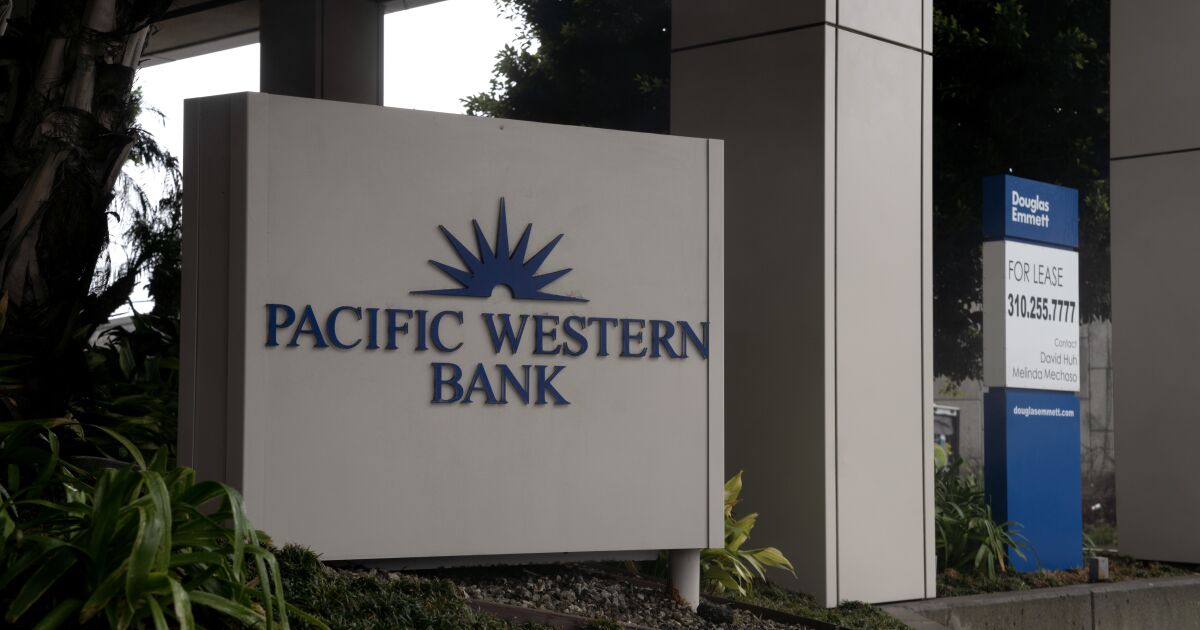
PacWest Surges Over 70%, Driving Recovery in Regional Bank Stocks
PacWest's Impressive Rebound Sparks Hope for Regional Banking Sector Amid Market Uncertainty
After a tumultuous week for regional bank stocks, Friday saw a strong rebound in the sector. Despite this bounce-back, the market is still on track for significant losses this week, spurred by the failure of First Republic Bank. Notable gains included PacWest, which saw a jump of over 70%, Western Alliance, which gained 37%, and Zions Bancorp, which added around 17%. The SPDR S&P Regional Banking ETF (KRE) also experienced growth, rising by over 5%.
This week's decline was driven by the seizure of First Republic Bank by regulators and its sale to JPMorgan Chase before the market opened on Monday. The failure of First Republic caused concern in the banking sector, leading to a decrease in the value of regional bank stocks, including those that reported smaller deposit outflows than First Republic. Wall Street analysts have warned that these stocks may be detached from their fundamentals, with Fundstrat strategist Tom Lee stating, "We are arguably reaching a point of hysteria."
JPMorgan Chase analysts upgraded Western Alliance, Zions, and Comerica to overweight on Friday, asserting that these bank stocks appear "substantially mispriced." The market's uncertainty was further exacerbated by the announcement that PacWest is exploring strategic options and the government seizure and sale of First Republic Bank earlier this week. Despite some investors, like hedge fund billionaire Bill Ackman, warning of potential future pain, others believe the plunge may have gone too far. Bloomberg Intelligence analyst Herman Chan remarked, "The tension between poor market sentiment and strong liquidity at regional banks is difficult to reconcile as investors take a draconian view of banks' capital and operating models."
As the market seeks a bottom, there is hope for a potential turnaround for regional banks. The Federal Deposit Insurance Corporation (FDIC) is reportedly planning to exempt smaller lenders from contributing extra money to the deposit insurance fund, providing relief for banks with less than $10 billion in assets. This proposal comes as the FDIC prepares to replenish the fund, which was depleted by the failures of Silicon Valley Bank and Signature Bank.
Short sellers have profited from the decline in regional bank stocks, with equity trades betting against these lenders netting approximately $7 billion in paper profits so far this year. However, potential policy remediation may put an end to these short positions. Chris Murphy, co-head of derivatives strategy at Susquehanna International Group, suggested, "While it's hard to see a catalyst to turn around the regional banks right now, it is a very popular and very crowded short which might be due for a squeeze at some point."
In an attempt to reassure investors, PacWest announced that core deposits have increased since March and that it "has not experienced out-of-the-ordinary deposit flows following the sale of First Republic Bank and other news." Additionally, Western Alliance stated that it has not seen unusual deposit flows following First Republic's collapse.
With analysts upgrading regional bank stocks and the market potentially reaching a bottom, there may be a light at the end of the tunnel for regional banks. However, Wall Street executives and bank analysts continue to call for regulators to provide greater protection for bank deposits and consider other backstops, arguing that only strong intervention can stop the banking crisis.
Read More
-
GPIQ ETF Price Forecast: Can a 10% Yield at $52 Survive the Next Nasdaq Selloff?
09.02.2026 · TradingNEWS ArchiveStocks
-
XRP ETF Price Forecast: XRPI at $8.32, XRPR at $11.86 as $44.95M Inflows Defy BTC and ETH Outflows
09.02.2026 · TradingNEWS ArchiveCrypto
-
Natural Gas Futures Price Forecast: Will The $3.00 Floor Hold After The $7 Winter Spike?
09.02.2026 · TradingNEWS ArchiveCommodities
-
Stock Market Today: Dow Back Under 50K While S&P 500 and Nasdaq Push Higher as Gold Reclaims $5,000
09.02.2026 · TradingNEWS ArchiveMarkets
-
USD/JPY Price Forecast: Can Bulls Clear 157.5 Without Triggering a 160 Intervention Line?
09.02.2026 · TradingNEWS ArchiveForex


















